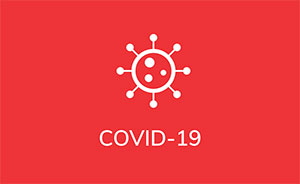CLL Society is pleased to introduce Dr. S Shahzad Mustafa, MD Lead Physician – Allergy, Immunology, & Rheumatology, Rochester Regional Health, Clinical Associate Professor of Medicine University of Rochester School of Medicine and Dentistry, Rochester, NY to answer your questions on the third COVID vaccine booster. Dr. Mustafa is the first immunologist to join CLL Society’s Expert Medical Council.
Introduction and Background
As most people have heard, the FDA recently announced expanded emergency use authorization (EUA) for a third dose of the mRNA COVID vaccine (Pfizer or Moderna) for individuals with compromised immune systems. This has since been endorsed by the CDC’s Advisory Committee on Immunization Practices (ACIP). Approximately 3% of Americans, or 10 million people, qualify for a third dose based on these guidelines. Although there is some debate as to the exact health conditions that cause immune compromise, patients with CLL qualify for a third dose of the COVID vaccine under these guidelines. This most recent recommendation has raised many questions, some of which will be addressed below.
Why get a third dose of either the Pfizer or Moderna COVID vaccine?
Multiple studies are showing that patients with certain conditions, including CLL, may have lower levels of antibodies in response to the COVID vaccine as compared to people who are not immunocompromised. Additionally, certain therapies used to treat blood cancers also hinder the immune response to vaccination. Early studies have shown that a third dose of the COVID vaccine in patients with organ transplants increases the immune response and leads to higher levels of antibodies against COVID. This information likely applies to blood cancers like CLL as well. Even in patients who did not have an adequate antibody response to the first two doses of the COVID vaccine, the third dose may lead to higher antibody levels, and hopefully increased protection against COVID as a result.
Is a third dose safe for patients with CLL?
In general, additional doses of vaccines do not pose significant health concerns or an increased risk of side effects. This appears to be true for the COVID vaccines as well, and a third dose has been shown to be well tolerated in patients who are immunocompromised and on kidney dialysis. Patients with CLL who receive a third vaccination are expected to experience similar side effects to when they received doses 1 and 2; most commonly pain at the injection site, fatigue, and muscle aches that last 24 hours.
Does a booster imply patients will need additional doses every year, or even sooner?
The term “booster” implies the need to boost the immune response at specific intervals, for example, every 8-12 months. Our immune system has memory, and antibodies tend to last far beyond 8-12 months, with most antibodies lasting for many years. Therefore, the term “booster” is a bit misleading, since frequent doses (such as annually) are unlikely to be necessary. It is more likely that this third dose will represent a three-dose vaccination series that will hopefully provide long-lasting immune protection. This is similar to what has long been done with certain childhood vaccinations, such as hepatitis B. New variants that are not as well covered by the present vaccines may necessitate reassessing the need for future doses of the same or new modified vaccines.
Who is most likely to get a good response from a third dose of the COVID vaccine?
Many factors go into determining a patient’s immune response to vaccination, including the stage of the underlying disease. Patients with early or well-controlled CLL are likely to respond better to vaccination as compared to patients with advanced CLL. Additionally, patients on certain therapies (such as ibrutinib and rituximab) may have an impaired immune response. Given the difficulty in predicting a person’s immune response, all patients with CLL are advised to receive a third dose of the COVID vaccine since the risk of significant side effects is very low, with the upside of increased protection from severe COVID-19 infection.
Should I get my antibody levels tested to determine if I responded to the vaccine?
Although antibody levels are routinely checked by immunologists to evaluate a patient’s immune system, there are a lot of unknowns on how to best interpret antibody testing for COVID-19. A test showing no antibodies is suggestive of a poor immune response to the vaccine, but a test showing the presence of antibodies against COVID does not necessarily prove protection since the optimal level of antibodies remains unknown. Additionally, antibody levels can fluctuate over time do not necessarily assure protection in the future. For these reasons, even though antibody testing is not recommended for routine use, patients with CLL may wish to discuss the utility of testing on a case-by-case basis with their healthcare provider.
How should I proceed if I get a third dose of the COVID vaccine and still do not mount an immune response?
Patients with CLL and other immune-compromising conditions benefit from additional risk mitigation techniques, such as wearing a tightly-fitted facemask, avoiding large crowds, maximizing hand hygiene, etc. Additional therapies that provide protection to those who cannot respond to the vaccine are also being studied, with early but promising results.
For individuals who are immunocompromised, including CLL, who have been vaccinated but still become infected with COVID-19 or have a high-risk exposure, early treatment with monoclonal antibodies within the first 10 days can decrease the risk of severe disease and hospitalization. All patients should discuss these treatment options with their healthcare provider and have a detailed COVID-19 Action Plan in place.

















